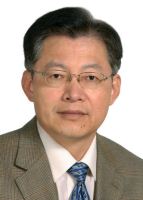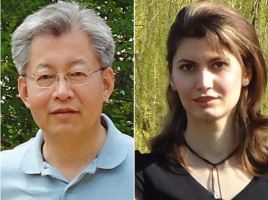|
|
来源: 文学城
加拿大滑铁卢大学 (University of Waterloo)华裔机械和机电工程系教授李冬青(译音:Dong Qing Li)博士,因为在论文中涉及剽窃他人成果,被校方予以停止教职4个月的处分,处分期间不准使用任何校内资源,处分从今年4月1日起执行。
李冬青本人已经承认了剽窃行为,并为此向全校师生道歉,对于由此给大学带来的负面影响表示深切歉意。
滑大副校长Feridun Hamdullahpur在一封致全校师生的电子邮件中表示,学术诚信是滑铁卢大学的核心价值,反映了全校师生的公平,责任和尊重。
李博士的行为令学校的国际性声誉蒙上阴影。
今年夏初,滑铁卢大学教授李冬青(Dongqing Li,音译)和攻读工程学博士学位的达希吉(Yasaman Daghighi)因涉嫌剽窃,撤回在Microfluidics and Nanofluidics期刊上发表的一篇有关芯片实验室制备最新技术。
加拿大华裔教授论文剽窃 向全校师生道歉1

加拿大华裔教授论文剽窃 向全校师生道歉2

据多伦多星报报导,文章应作者要求被撤回;作者在撤回声明中称,文章援引麻省理工和加州大学科研人员,在诱导电荷电现象方面的研究成果未作任何修改,一些从其他发表文章上援引的复制数据也没有提供适当的参考来源。作者在撤回声明中还称,为自己的疏忽道歉。
不幸的是,该撤回声明被美国学术监督机构—撤回观察搜出,麻省理工化学工程兼数学副教授巴赞特(Martin Bazant)在撤回观察上发表的一份报告中表示,整个撤回事件中有许多可疑之处,该文章最初以李冬青为作者署名发表在Microfluidics and Nanofluidics期刊上,自文章撤回后,李东庆从主编位置上退下。
巴赞特还表示,自己是在浏览2011年科研文献时,无意中发现2人在Microfluidics and Nanofluidics 期刊上发表的上述报告,结果发现该报告公然抄袭了自己和同事斯凯尔斯(Todd Squires)的大量数据,其中许多数据就是直接复制和粘贴,甚至连标题都一样。
对星报近日质疑,滑大发言人仅承认李东齐和达希吉2人分别是该校教授和毕业生,对于其他问题,则以涉及个人隐私为由拒绝透露。
滑大外联及公共事务部副校长Ellen Rethore表示,滑大学生一旦被发现剽窃,根据学生具体情况,要么取消成绩,要到开除学籍,无论剽窃是否是是首次行为,因此达希吉本人面临处罚可能包括谴责函和开除学籍。
Ellen Rethore还表示,滑大在过去5年没有发现任何教职员工涉嫌剽窃。
最近大学方面完成了对李冬青博士涉嫌剽窃的调查,并作出以上判罚
又一千人论文抄袭被抓现行 来源:嵇少丞的博客
浙江大学能源工程学系与热能工程研究所教授聘请的加拿大滑铁卢大学微纳米流体专业李冬青教授是中共中央组织部的国家千人学者,还是大连海事大学轮机工程教育部长江学者讲座教授,最近却被加拿大主流英文报纸曝光,与学生(Yasaman Daghighi)一起涉嫌论文抄袭,其头像照片也被登上加拿大各大报纸,说明加拿大对学术不端零容忍。这是自去年哈医大千人学者王志国因论文中照片作假被蒙特利尔大学心脏病研究所勒令下岗之后,李冬青涉嫌抄袭事件又一次使得华人学者在加拿大蒙羞。
Springer-Verlag 2012
Retraction to: Microfluid Nanofluid (2010) 9:593–611
DOI 10.1007/s10404-010-0607-2
The article has been retracted by request of the authors.
Unaltered text was taken from a pre-published version of
Bazant MZ, Squires TM (2010) Induced-charge electrokinetic
phenomena. Curr Opin Colloid Interface Sci 15(2010)
203–213. Moreover, a few reproduced figures from other
published articles lack appropriate references. The authors
apologize for their negligence.
据报道李冬青教授和Yasaman Daghighi发表在Microfluidics and Nanofluidics的一篇文章(http://link.springer.com/article/10.1007/s10404-010-0607-2)整段地抄袭美国麻省理工学院一学者先前发表的论文【Bazant MZ, Squires TM (2010) Induced-charge electrokinetic phenomena. Curr Opin Colloid Interface Sci 15(2010) 203–213】和加州大学Santa Barbara分校学者的论文。Microfluidics and Nanofluidics是由李冬青教授创办并自任主编的学术期刊。据报道,李冬青教授现已辞去该刊物的主编职务。
这样低级的抄袭,理应不是李教授本人亲自所为,可能是其博士生Yasaman Daghighi所为,但是,李教授毕竟是论文指导老师和论文的共同作者。但是,李教授问题的性质明显地比王志国的要轻,王是多篇文章连续作案,原单位因此对其不可原谅。
这样严重抄袭的文章竟然通过审稿,此事再次引发“学者是否要在自己主编的期刊上发论文”的讨论,见
http://retractionwatch.wordpress.com/2012/08/08/plagiarism-costs-canadian-lab-on-a-chip-researcher-a-paper-in-his-own-journal/
不知浙江大学和中组部会给李冬青教授如何处理?
去年秋天,王志国因为学术不端被加拿大蒙特利尔大学心脏病研究所勒令走人,但是他至今依然是中组部的千人与哈医大的研究所所长与教授。所以,网上有人讽刺说,“有学术不端问题科研人员,去中国发展吧!”长期以往搞“形而下”的弄虚浮夸,中国如何科技创新与发展强大?如何敢去日本碰硬?
随着中国千人计划的实施,不断暴露出各种各样的问题,不仅为中国科教界的反感,也引起西方国家科教界管理部门的关注与反制,主要有职业伦理和学术伦理两个方面的问题,一个在欧美单位全职职员是否应该再去中国做 “全职工作”以及所取成果的知识产权归属问题,这些属于职业伦理关注的范畴。一个人时间精力有限,有了两边交差的压力,若不惜抄袭或粗制滥造多发论文,这属于学术伦理关注的问题。这类问题特别在中组部的千人学者、教育部的长江学者中尤为严重,不得令人反思。
-------------------------------------------------------
加拿大英文报刊的相关报道 《星报》的报道
Waterloo prof and student caught up in plagiarism scandal
http://www.thestar.com/news/canada/politics/article/1255771--waterloo-prof-and-student-caught-up-in-plagiarism-scandal
Published on Wednesday September 12, 2012
Dongqing Li (University of waterloo Dongqing Li is the Canada research chair at the University of Waterloo)
Richard J. Brennan
National Affairs Writer
The University of Waterloo is being tight-lipped about a plagiarism scandal that has ensnared one of its top research scientists and an award-winning graduate student.
Dongqing Li, Canada research chair at U of W, and Yasaman Daghighi, an engineering student working on her PhD, earlier this summer retracted a report about advances in lab-on-a-chip technology.
According to the retraction in the journal Microfluidics and Nanofluidics, the two lifted material from a research paper by scientists at the Massachusetts Institute of Technology and the University of California, Santa Barbara.
“The article has been retracted by request of the authors. Unaltered text was taken from a pre-published version of . . . (2010) Induced-charge electrokinetic phenomena . . . . Moreover, a few reproduced figures from other published articles lack appropriate references. The authors apologize for their negligence,” stated the retraction.
The retraction was uncovered by the U.S.-based academic watchdog Retraction Watch, which noted that the paper was originally published in Microfluidics and Nanofluidics, which Li established. He has since stepped down as editor-in-chief, Retraction Watch reports.
“There are a lot of fishy aspects to the whole thing,” Martin Bazant, the lead author of the U.S. paper published in the journal Current Opinion in Colloid & Interface Science, told Postmedia News.
Bazant, associate professor of chemical engineering and mathematics at MIT, is reported to have stumbled upon the Waterloo report in Microfluidics and Nanofluidics while browsing the scientific literature in 2011.
He said the U of W paper “blatantly plagiarized” material written by him and colleague Todd Squires.
“A good chunk of it was a cut-and-paste job,” Bazant said. The Waterloo report even had the same title as Bazant’s report.
When contacted by the Star, a U of W spokesperson would confirm only that “Dongqing Li is a professor and Yasaman Daghighi is a graduate student at the University of Waterloo.”
It chose instead to cite privacy reasons for not answering any further questions.
Daghighi, an award-winning student, could face punishment ranging from a letter of reprimand to expulsion. It is less clear what could happen to Li. Neither could be reached for an interview.
Penalties for plagiarism by students at Waterloo can range from a zero on the assignment to expulsion, depending on factors such as whether the student is in an undergraduate or graduate program, and whether it is a first offence, Ellen Réthoré, associate vice-president of communications and public affairs, said in an email statement.
She told the Star there have been no allegations of suspected plagiarism against a faculty member in the last five years.
---------------------------
百度网这样介绍李冬青教授
http://baike.baidu.com/view/4672568.htm
浙江大学客座教授,大连海事大学轮机工程教育部长江学者讲座教授。1982年在浙江大学获得学士学位,1991年在Toronto大学获得博士学位。从1993年起,李教授先后在Alberta大学机械工程系,Toronto大学机械与工业工程系,Vanderbilt大学机械工程系等单位工作。自2008年起,李教授作为加拿大第一层次首席教授进入 Waterloo大学微流控和纳流控中心工作。李冬青教授主要研究基于微机电系统的应用于芯片实验室的微流控和纳流控技术。到目前为止,共发表了220多篇国际顶级杂志文章,2本专著以及10多个合作章节,李教授的文章已经被SCI引用超过5000次,目前李教授是国际杂志— “ Microfluidics and Nanofluidics”的主编。
《国家邮报》报道
http://news.nationalpost.com/2012/09/11/university-of-waterloo-researchers-issue-retraction-and-apology-after-using-u-s-experts-text-and-information/
Hand outsDongqing Li and Yasaman Daghighi have retracted their report about advances in lab-on-a-chip technology after accusations of plagiarism.
In what is being described as a case of “blatant plagiarism,” a top Canadian scientist and one of his students have issued a retraction for using text and figures that originated with leading United States researchers.
Dongqing Li, who holds a prestigious Canada research chair at the University of Waterloo, and Yasaman Daghighi, an award-winning student nearing completion of her PhD in engineering, have retracted a report about advances in lab-on-a-chip technology.
Related
University of Alberta medical school dean resigns after plagiarizing speech
Should Saskatchewan students be punished for plagiarism?
The retraction says their report took “unaltered text” from a research paper by scientists at the Massachusetts Institute of Technology and the University of California, Santa Barbara. Li and Daghighi also failed to provide “appropriate references” for “a few reproduced figures,” it says.
Li and Daghighi, who teach engineering at Waterloo, did not respond to requests for interviews.
University of Waterloo officials, who actively urge their students and staff to stand up for academic integrity, will say nothing about the case involving one of the university’s most celebrated researchers. Li, who is devising hand-held diagnostic devises for use in biomedical and environmental testing, has received more than 2millioninfederalsciencegrantsandhasbeenpromisedanother700,000.
The university is not commenting on the case “because of privacy concerns,” Ellen Réthoré, Waterloo’s associate vice-president of communications and public affairs, told Postmedia News by email on Tuesday.
A good chunk of it was a cut-and-paste job
Federal research agencies are also silent on the case, which has generated attention in the U.S., where the retraction was recently uncovered by Retraction Watch. The group shines light on one of the darker corners of academia by tracking corrections and retractions in the research literature.
“Plagiarism costs Canadian lab-on-a-chip researcher a paper,” the website says.
In a strange twist, it says that Li and Daghighi appear to have plagiarized the U.S. report before it was even published, then published their paper in a journal Li was editing.
“Daghighi was then his graduate student, and it’s pretty easy to see him assuring her of a plum publication,” Adam Marcus of Retraction Watch writes. “What’s less clear is how either of the authors might have gotten their hands on a pre-publication version of (the U.S.) paper that appeared in a different journal.”
“There are a lot of fishy aspects to the whole thing,” Martin Bazant, associate professor of chemical engineering and mathematics at MIT, said when contacted by Postmedia News.
Bazant, who heads a team that has made headlines for its work on lab-on-a-chip and advanced battery technology, was lead author of the U.S. paper. He says it was “blatantly plagiarized” by the Waterloo researchers.
Plagiarism is defined as the presenting of ideas, words or intellectual property of another as one’s own. “Plagiarism is a very serious academic offence and can result in expulsion from the University,” say Waterloo’s academic regulations.
“Academic Integrity is the cornerstone of research, teaching, and learning,” says Waterloo’s office of academic integrity. “Members of the University of Waterloo community are expected to personally demonstrate academic integrity in their work.”
Bazant says he happened on the Waterloo report in the science journal called Microfluidics and Nanofluidics while browsing the scientific literature in 2011.
The Waterloo report has the same title, “Induced-charge electrokinetic phenomena,” as a report Bazant and his colleague Todd Squires in California published in the journal Current Opinion in Colloid & Interface Science. The 19-page Waterloo report has a similar outline, uses some of the same figures and contains tracts of identical text.
Dongqing Li declared himself that he regards this case clearly being plagiarism
“A good chunk of it was a cut-and-paste job,” says Bazant.
Li and Daghighi’s report states that it was submitted for publication on Jan. 15, 2010, two weeks before Bazant and Squires’ report was published on-line on Jan. 28, 2010.
Bazant says he is still puzzled over how Li and Daghighi got a hold of his report, but says he may have posted a copy on his MIT website, after the paper was accepted for publication on Jan. 11, 2010.
Bazant notified University of Waterloo engineering dean Pearl Sullivan about what he described to her as “plagiarism and abuse of editorial privilege” in April 2012 “as a professional courtesy.” He also contacted the journal and asked for a retraction.
Li was founding editor of Microfluidics and Nanofluidics, one of several journals in the field of nanotechnology, in which researchers compete to be first with advances and publications.
The journal published Li and Daghighi’s one-paragraph retraction this summer. It says “unaltered text was taken from a pre-published version” of Bazant and Squires’ 2010 report. “Moreover, a few reproduced figures from other published articles lack appropriate references. The authors apologize for their negligence.”
Li has stepped down as editor-in-chief of the journal, and now sits on the editorial board. The new editor, Roland Zengerle, at the University of Freiburg in Germany, says two members of the editorial board investigated the case.
They came to the conclusion “that the amount of text taken over from Bazant’s paper should be regarded as plagiarism, but there was no evidence that Yasaman Daghighi or Prof. Li falsified submission dates,” Zengerle said by email. He say about eight per cent of Li and Daghighi’s report was “not cited correctly.”
“The Editorial Board was told, that Yasaman Daghighi saw a preprint of Prof. Bazant’s review paper on his website in March 2010 and obtained the text that way,” says Zengerle.
“Dongqing Li declared himself that he regards this case clearly being plagiarism,” Zengerle said. “He was not aware of it at the time the paper was submitted or revised, but as senior author he took responsibility and declared that he should have checked more carefully.”
Zengele said the investigators found that two critical sections were added when Daghighi prepared revisions of the Li-Daghighi manuscript in March 2010 after it was peer-reviewed. But “Two other critical sections were already in the manuscript before it went to the review process,” Zengele said.
The Natural Sciences and Engineering Research Council, the country’s biggest science funder, has awarded Li more than 2millioninfederalsciencegrantssince1992.HewasappointedaCanadaresearchchairin2009,whichcomeswith200,000 in federal funding annually for seven years along with $360,000 for “research infrastructure” from the Canada Foundation for Innovation.
NSERC would not to comment on the Waterloo case, saying the federal Secretariat on Responsible Conduct of Research, which was created last year, is now handling allegations about cases of misconduct. Suzanne Zimmerman, executive director of the secretariat, said she does not comment on cases that are reported in the media or are under review. |
|